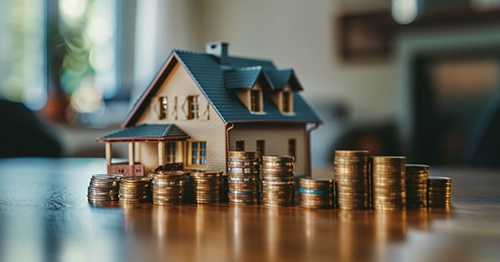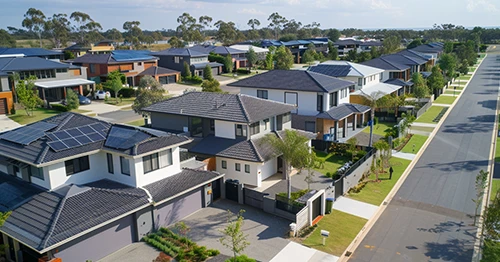Updated: 10 Mar, 2025
Table of Contents
As you hop from one property to another in search of the perfect house, knowing what questions to ask your real estate agent can save you a lot of time, stress and confusion.
Your agent can be your best friend and give you several tips – if you ask the right questions!
By asking the following questions you can identify potential risks with the property, have a better idea of the value of the property and tailor your offer to the needs of the seller.
Smart home buyers invest considerable time in researching their budget and the location to buy in before they begin looking at properties.
Get to know the agent
Would you answer a stranger’s questions? While it is an agent’s job to talk to potential buyers, they are more likely to give you helpful responses if they get to know you and like you.
When inspecting a property shake the agent’s hand, introduce yourself and get to know them. Then after looking around to familiarise yourself with the property, you can ask them more detailed questions.
1. Why are they selling the property?
This is the first question you should ask the agent. It will help you to assess the value of the property as well as the selling time frame.
Although some real estate agents might not feel comfortable to discuss these details, learning the motivation behind the sale will give a fair idea of what type of seller you are dealing with. It gives you an insight into how eager they are to sell the house.
For example, a person moving to another state for work will be more likely to want to sell the property faster than someone who is just upgrading to a bigger house. You could even negotiate a lower price due to the urgency.
2. How long has the property been for sale?
The length of time the house has remained in the market will influence its price. When a house is put up for sale, for the first 14 days, it becomes an exciting and interesting property for both real estate agents and prospective home buyers.
If the house fails to find a buyer after 60 days, then it is going to be much harder to sell.
Take your time to find out more about the property has been on the market for so long. There might be a reason behind its prolonged presence.
Some owners are happy to wait for years for an unrealistic price, however other sellers could be desperate to sell and may accept a low offer.
Also, if the agent’s contract to sell the property is on the brink of expiration, then he will be on your side to push the seller to accept a lower offer.
3. What is the original asking price for the property?
Ask your real estate agent what price range was offered previously. You should also enquire:
- How many offers were made and what were the prices being offered?
- How many were declined by the house seller?
- If some were successful, why did the deals fall through?
By investigating these aspects, it gives you an idea of the amount the seller is expecting and how much the previous interested buyers thought the value of the house was.
Asking the above questions will present you as an informed buyer, and the agents will give you transparent answers.
4. Are the sellers ready to negotiate on the price?
If you find a house you really want to purchase, then don’t be shy to ask your real estate agent whether the seller is ready to reduce the price. He might give you this valuable information even before you make a deal.
As a general rule Australian properties usually sell up to 10% less than their original asking price. However, this depends on the market and location so you should always do your own research into the value of a property.
5. What is the lowest price they are willing to accept?
If you are on a bargain hunt then you must never forget to ask the lowest amount the sellers will settle for. Some real estate agents will simply tell you, others might only give a subtle indication.
The purpose of this question is, if the real estate agent quotes $450,000 as the minimum price, then you can understand whether you can really afford the property or not.
6. What else should I know?
Apart from the essential questions mentioned above, there are a few things you need to keep in mind when you are property shopping.
- Do some quick research of your own about the local market. For instance, the number of houses sold last year, the amount that they were sold for, the time of year when most properties sell, and so on.
- Look at the demographics of the area. Is the area made up of senior citizens or young professionals? Families or single parents? For the best growth, you should buy a property that suits the demographics of the area.
- Ask the agent how feasible it will be if you want to renovate or extend the property.
Do not just settle on the first house that you “think” is the right one for you. It should be a carefully calculated investment and not an emotional purchase. By communicating your concerns, you are trying to create a beneficial transaction for everyone involved.





